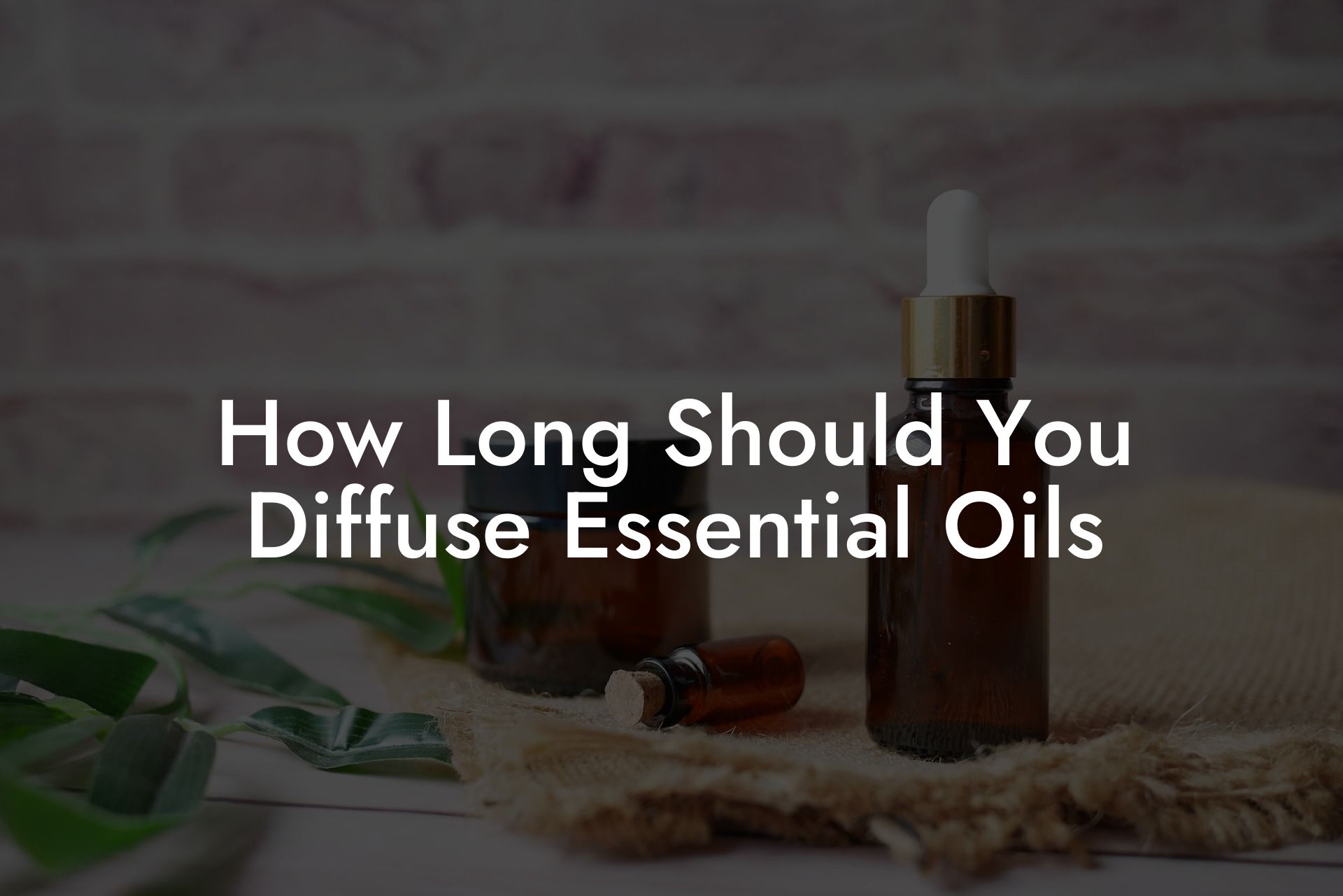Discover the art of diffusing essential oils and learn how to create the perfect aromatic atmosphere for your home, office, or personal space. In this comprehensive guide, we will explore the factors that influence how long you should diffuse essential oils to maximize their benefits and maintain an optimal balance.
Table of Contents
Understanding Essential Oil Diffusion
The process of diffusing essential oils involves dispersing their particles into the air to create a specific atmosphere that can enhance mental and physical well-being. There are various methods of diffusion, such as ultrasonic, heat-based, and evaporative. Each method has its advantages and downsides, so it is essential to choose the right one suited to your needs.
Ultrasonic Diffusers
- Use water and ultrasonic vibrations to create a fine mist that disperses the essential oil particles
- Do not require heat, which preserves the oils’ therapeutic properties
- Provide an added bonus of humidifying the air
Heat-Based Diffusers
- Utilize heat to disperse essential oil particles into the air
- Can potentially alter the oils’ chemical composition due to heat exposure
- Typically less expensive than ultrasonic diffusers but may not be as effective for therapeutic purposes
Evaporative Diffusers
- Rely on air circulation to spread essential oil particles throughout the room
- Often portable and less expensive than other methods
- Can result in uneven diffusion, as lighter oil components evaporate more quickly than heavier components
Determining the Ideal Diffusion Duration
The optimal duration for diffusing essential oils depends on various factors, such as the type of oil, the purpose of diffusion, and individual preferences. Here are some guidelines to help you establish the perfect diffusion session:
Intensity of Aroma
Oils with stronger, more potent scents may require shorter diffusion periods compared to those with lighter, more subtle aromas. Consider starting with a shorter diffusion time for potent oils and increasing it gradually, as needed, for a pleasant but not overpowering aroma.
Size of Space
Larger rooms will naturally require more extended diffusion periods to effectively spread the essential oil particles. Meanwhile, smaller spaces can benefit from shorter diffusion times to prevent overwhelming scents.
Purpose of Diffusion
Consider your goal when determining the diffusion duration. For example, you may want to diffuse oils longer for relaxation or sleep, while shorter periods may be more suitable for an energy boost or to freshen up a room quickly.
Individual Preferences
Everyone’s sense of smell and tolerance to essential oils can vary. It is important to consider your preferences and adjust the diffusion time accordingly, ensuring a comfortable and enjoyable experience.
How Long Should You Diffuse Essential Oils Example:
Imagine you want to create a relaxing atmosphere in your living room while watching a movie. This medium-sized space might benefit from a diffusion session of about 30 minutes, using a calming essential oil like lavender. An ultrasonic diffuser would be an excellent choice for this purpose and would ensure a gentle mist of essential oil particles without altering the therapeutic properties.
Now that you have a better understanding of the factors that influence how long you should diffuse essential oils, you are ready to create a personalized diffusion experience tailored to your needs. Experiment with different oils, diffusers, and durations to find the right balance that enhances your well-being and brings joy to your senses. If you found this guide helpful, please feel free to share it with your friends and family and explore other insights from Oshu Oils’ blog. Don’t forget to check out our range of artisan essential earth oils to start your aromacology journey today!





















